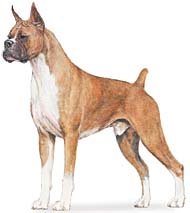
Epulides:
-
What are epulides?
- Epulis is a term that means: any benign lesion on the gingiva.
- A veterinary dentist usually means: a noncancerous growth coming from the ligaments that anchor a tooth in the jaw bone.
- Epulides may be fibromatous (mostly soft tissue), ossifying (contains some bone) or acanthomatous (causes soft tissue and bone to break down).
-
What causes epulides?
- No one really knows why epulides grow.
- Boxers seem to be predisposed to developing fibromatous epulides.
-
Are all oral masses epulides?
- Growths on the gums may be caused by gingival hyperplasia, foreign body reactions, infections or tooth resorption.
- Not all oral masses are benign. Cancerous tumors may also look like epulides.
-
What effect do epulides have?
- Growths on the gums can have the same effects as gingival hyperplasia.
- Acanthomatous epulides grow very large and cause bone and teeth to dissolve.
-
How are they diagnosed?
- Step 1: look for thickened gingiva, oral odor, drooling, “disappearing” teeth, and bleeding gums.
- Step 2: take dental radiographs; sometimes a CT scan is needed to determine the true size of an acanthomatous epulis
- Step 3: histopathology should be performed if a cancerous tumor is suspected or the affected areas do not respond as expected to conventional treatment
-
How are they treated?
- Surgical removal of the epulis and its source is the best method of treatment.
- Conservative surgical removal of the epulis will give it a chance to grow back.
- Acanthomatous epulides may become cancerous if treated with radiation.
COMING SOON: Attrition





